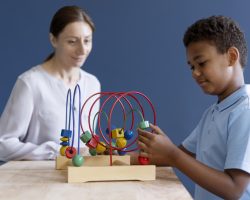Motivation for Children: How to Reward Behavior Without Technology

“The thing that motivates my 11-year-old son with attention deficit hyperactivity disorder (ADHD) is screen time — whether on the computer or watching TV,” one reader tells us. “He gets one hour a day during the week and two hours a day on the weekend. Unfortunately, it’s about the only thing that motivates him. I wish I could find something new.”
Children with attention deficit hyperactivity disorder (ADHD) crave stimulation and immediate feedback, feeding into the use of technology. Both kids with ADHD and their neurotypical peers need to spend less time on the computer and more time in the real world interacting and communicating with others. The amount of time you have allotted for screen time is good. However, your child needs to earn this time.
The good news is you can find additional activities for your child to enjoy that do not include the use of a computer. He may feel more comfortable on the computer than interacting with others. To work on changing this, give your child tools to succeed in interpersonal relationships by enrolling him in a social skills training class to learn how to make and keep friends.
Also work with your child to explore other sports and activities that are stimulating and engaging. Physical activity has been shown to increase focus and benefit those with ADHD. Some kids with ADHD struggle in team sports due to difficulty following directions and/or poor motor skills. If that’s the case for your child, encourage him to try running, working out at the gym, gymnastics, or martial arts like karate.
Many kids with ADHD are turned off by reading and often report how boring it is for them as a result of their inability to maintain focus. But one way to encourage reading is, ironically, through the use of technology. I have seen many children with ADHD become motivated to read for enjoyment using an e-reader such as a Kindle or Nook. Technology can be a viable tool when it is used to expand the mind and help bridge the gap between a child’s learning difficulties and his or her strengths.
 Linda Karanzalis, MS
Linda Karanzalis, MS
Linda Karanzalis, MS, is a former special education classroom teacher with over 25 years of experience in the areas of learning disabilities, ADHD, social-emotional learning, social skills training, and behavior management













